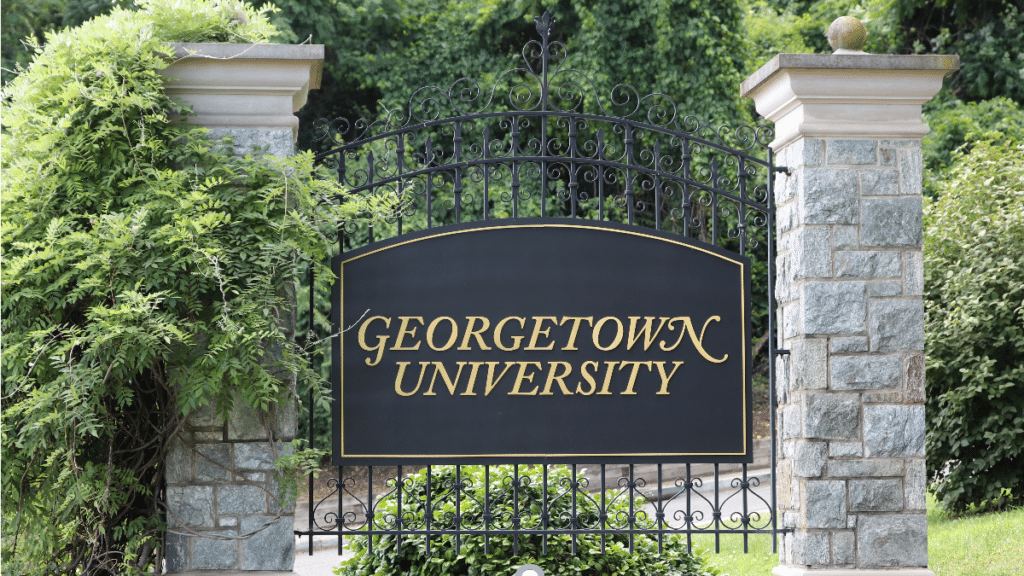New Institute at Georgetown to Translate Science on Tech, Media and Democracy into Policy
Justin Hendrix / May 28, 2023Justin Hendrix is CEO and Editor of Tech Policy Press. The views expressed here are his own.

Last week, the John S. and James L. Knight Foundation and Georgetown University announced a $30 million commitment to create the Knight-Georgetown Institute (KGI), "a new institute to serve as a central hub for the growing network of scholarship that seeks to shape how technology is used to produce, disseminate and access information." The institute will be physically located at 500 First Street, NW, in Washington D.C., about a ten minute walk from the U.S. Capitol.
“The need to understand the ways technology impacts our information production systems and our democracy is vital to our shared futures," said Georgetown Provost Robert M. Groves.
I'm enthusiastic about this new institute. Tech Policy Press is similarly committed to a mission of policy debate and discussion grounded in science (and has been a beneficiary of the Knight Foundation's support for efforts in this regard). Whether the question is how to regulate social media or what to do about the potential harms of artificial intelligence on information systems, it's crucial that science informs policy. From media effects to the behavior of populations in networks, the impact and interaction on and between people and technological systems is immensely complicated, and often counterintuitive.
“In recent years, Knight has invested deeply in new scholarship that can animate the policies and practices that promote democracy through enhanced access to trustworthy civic information online,” John Sands, Knight Foundation’s Senior Director for Media and Democracy, noted at the Nobel Prize Summit last week. The new institute at Georgetown will serve as a membrane between the growing network of researchers concerned with these issues and policymakers.
And, it may help to address an asymmetry that exists between the public and tech firms themselves about the impact of their products on society. At the Nobel Prize Summit, Knight President Alberto Ibargüen noted that while the foundation has invested more than $90 million into social science research over the last five years, it's still hard to keep up with what the tech firms are able to invest. "In the world of Google, that's probably a committee," he said. And that's before considering the unfettered access to data inside the firms, another factor that puts independent researchers at a disadvantage.
There is a great deal of urgency on these issues. At an event on algorithms and their impact on speech at the end of last month hosted at another Knight-funded institute, the Knight First Amendment Institute, scholar, former deputy assistant to President Joe Biden and acting director at the White House Office of Science and Technology Policy Alondra Nelson spoke about the way that technology interacts with, mediates and in some cases underpins aspects of the "polycrisis," a set of interconnected challenges ranging from climate change to geopolitical conflict to inequality, and crucially to the erosion of democracy. Nelson extolled the virtues of researcher access to platform data, and challenged the notion that the outcomes tech firms seek are pre-ordained. She called on researchers to pierce the "politics of ignorance" on issues at the intersection of tech and society, drawing parallels to the behavior of tobacco and pharmaceutical companies in past decades.
The new institute at Georgetown, which will join the university's Tech & Society Initiative and a variety of other related research efforts, should serve as an important lodestar in a constellation of initiatives to overcome that politics of ignorance.
Taken together with the implementation of transparency and data access measures in Europe's Digital Services Act (DSA), as well as the possibility that such requirements may be mandated in the U.S., there is hope that by the end of this decade the situation may be very different from where it is today. That's a sentiment I share with Soyica Diggs Colbert, Vice President of Interdisciplinary Initiatives and Idol Family Professor at Georgetown.
“We can only imagine how much more robust things will be 10 years from now, and the Knight–Georgetown Institute is an indication of our promise,” said Colbert.
Authors
